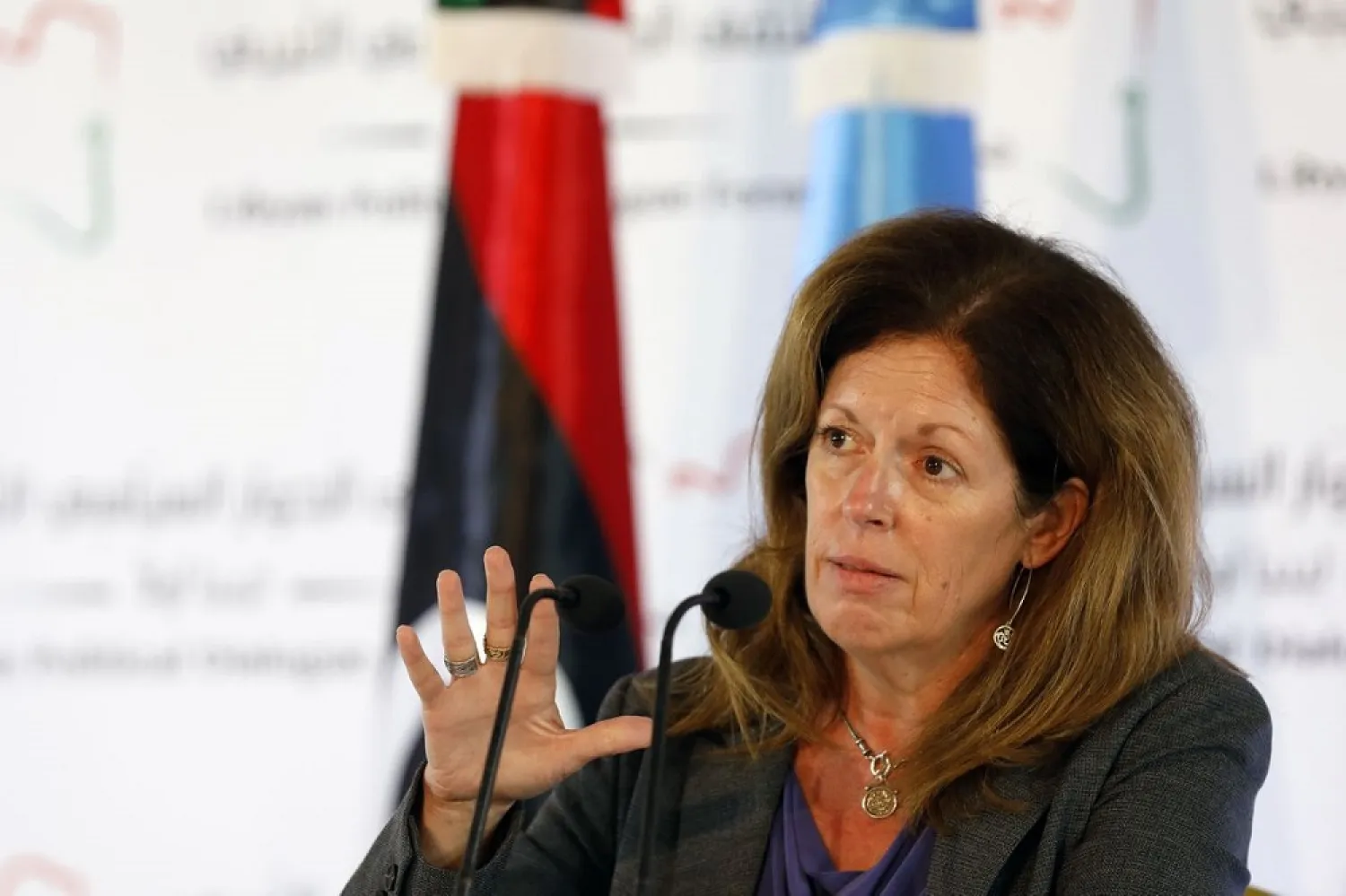United Nations acting envoy for Libya Stephanie Williams said Wednesday there are at least 20,000 foreign fighters and mercenaries in the war-torn nation, and warned of a “serious crisis” as weapons continue pouring into the North African country.
“That is a shocking violation of Libyan sovereignty ... a blatant violation of the arms embargo,” Williams told an online meeting of the Libyan Political Dialogue Forum.
The 75-member forum is trying to get Libya's warring sides to agree on a mechanism that would establish a transitional administration to lead the country through presidential and parliamentary elections in December 2021.
Williams’ remarks reflect her exasperation over the lack of progress on the departure of foreign fighters and mercenaries from Libya, which was part of a ceasefire deal inked in October.
The ceasefire deal had set a three months’ deadline for foreign forces to leave Libya. Thousands — including Russians, Syrians, Sudanese and Chadians — have been brought to Libya by the rival sides, according to UN experts.
UN Secretary-General Antonio Guterres was to make recommendations to the Security Council by the end of November on proposals for ceasefire monitoring in Libya. But he has delayed this until the end of December as the warring sides are still discussing “critical elements” to monitor the ceasefire, according to a letter Guterres sent to the council.
Williams also slammed unspecified foreign governments for “behaving with complete impunity” and deepening the Libyan conflict with mercenaries and weapons.
Williams also warned about a looming “collapse of the electrical grid” in Libya because of corruption and mismanagement, adding that a $1 billion investment in the electrical infrastructure is immediately needed, given that only 13 of Libya’s 27 power plants are functioning.
She said 1.3 million of Libya’s more than 6.8 million people are expected to need humanitarian assistance in January.
Later on Wednesday, Williams held telephone talks with Speaker of the east-based parliament Aguila Saleh on the latest developments in Libya.
They stressed “the need to promptly reach a consensus within the Libyan Political Dialogue Forum in order to end the divisions in the country and move forward towards national elections,” tweeted the UN mission.









